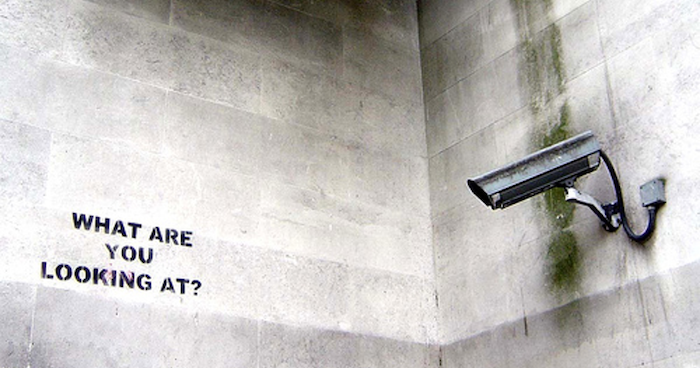|
Editor's Note: The following is a reprinted chapter on Surveillance from Dr. Paul's book Liberty Defined: 50 Essential Issues That Affect Our Freedom
By Ron Paul
Each of us is caught on camera quite a few times every day. Most of the time, we don't worry about it. We are taped getting money from a cash machine, buying things at the convenience store, shopping at the grocery, or just driving around a parking lot. Our data is collected even as we browse online. I don't see this as an inherent problem, since most of us agree to this kind of surveillance. When it is done by the private sector, it serves a social function and leads to more security and better service. Private security cameras on private property can be quite useful in performing a task that government can't and shouldn't be responsible for. Protecting individual plants, businesses, homes, apartments, or condos with cameras should be the prerogative of the property owner. We would all rather not deal with this, but we can also appreciate the benefits. Such surveillance enhances security and deters theft. The private use of video cameras is not my concern. In fact they can be used to promote freedom. They allow people to film law enforcement personnel when they get out of line. More police brutality has been caught on film than ever before, which serves the interest of all of us. I also note that most government agencies are now barring citizens in government offices from carrying cell phones, and there can be no doubt about the reason. Government doesn't want to be watched and filmed. Meanwhile, the government's own use of surveillance cameras is out of control. Cameras at traffic lights are pervasive throughout the country. Many cities have been sold on the idea, supposedly for safety reasons, but the reality is that the cameras are installed with the goal of raising revenue. The companies that put these cameras in are motivated because they share in the profits. Challenging the charges in court is frequently not even permitted. All public places now are subject to government cameras: roads, streets, buildings, and who knows where else. The excuse is always the same: They are providing safety for us. But unlike in the private sector, this is not really believable. Government much too often violates our privacy and at the same time is fanatical in protecting its own secrecy. Not only are the government's cameras proliferating, the government itself is turning even the private camera into a threat it otherwise would not be. Under the Patriot Act, private cameras, as well as cell phones and the Internet, are vulnerable to an aggressive federal government. Everyone theoretically can be a potential threat, a possible friend of an "enemy combatant," and therefore can be under surveillance one way or the other. We're constantly reminded we live in a dangerous time and we're at war, so be ready and willing to sacrifice your liberty so we can all be safe and secure. Whether surveillance is good or bad really depends on the institutions that use it and what the film is used for. Nothing good can come out of permitting government to film our every move. It strikes me like a scene out of Orwell's 1984. What I would like to see is the very opposite: citizens who film ever more government activity, a live camera in every government bureaucracy that can be seen by all citizens, a monitor on every bureaucrat that can be watched by every person who pays the bills. This would be a great way for the citizens to take back control. We need to protect citizens against government intrusions even as we curb the ability of the government to operate in total secrecy. Comments are closed.
|
Archives
July 2024
|



 RSS Feed
RSS Feed



